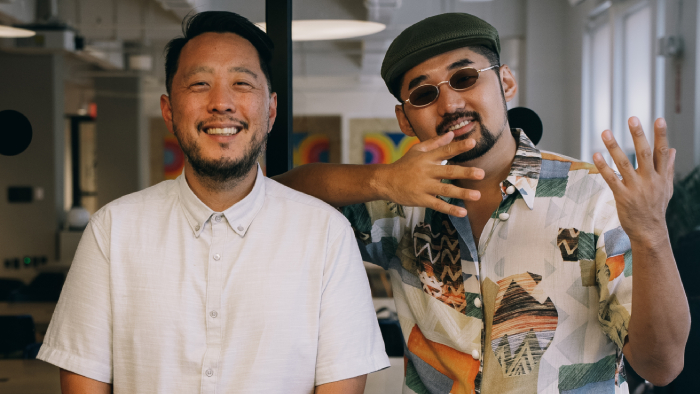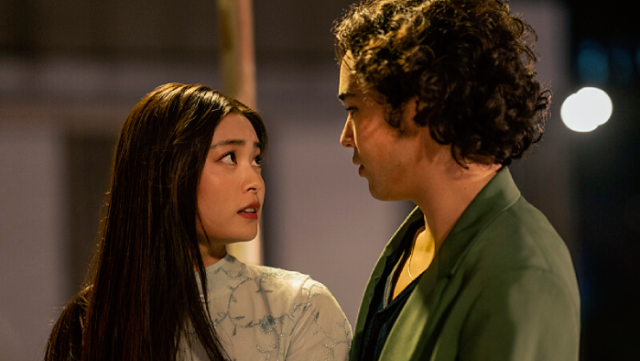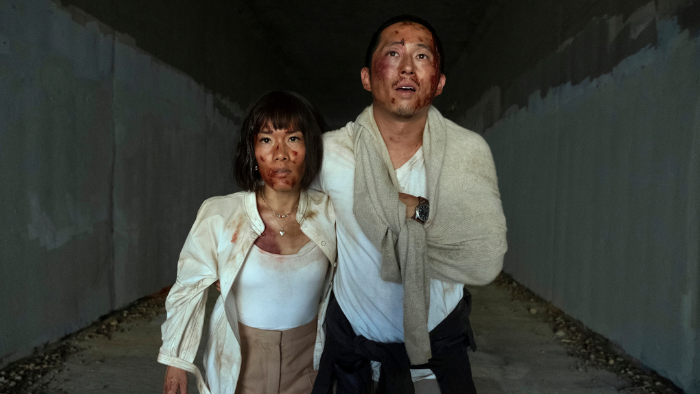It’s nothing new that people are using social media for good. From mobilizing young voters to funding charities and action funds, a little bit of feeding the algorithm can make a change and help those in need.
This is where Righteous Eats comes in, a social media account that serves as a platform that champions underserved communities, in this case, by way of food. It all started with co-founder and host Jaeki Cho, a culture journalist, business owner and creative, who began making videos of himself cooking on TikTok during the lockdown to stay sane. After amassing a couple hundred thousand followers on the app, he decided to use his platform to showcase the mom-and-pop businesses in his area as, at the time, two-thirds of restaurants in New York were projected to close down permanently.
Characterized by his deep voice and distinct New York accent, you might have seen Cho, while scrolling through the TikTok For You Page, at a local eatery, ready to share some of his favorite menu items. But instead of just giving you the usual food porn and the appetizing first bites, Cho delves into the history of the food spot, the cuisine and, more importantly, the owners and cooks behind it.
“We want to tell the story behind the food while also trying to provide utility on what you should try at a place you might have missed or that you might’ve felt a bit intimidated by because it’s a culture you’re not familiar with,” Cho says, making it a point to cover not just the food, but also the people.
“Whether it’s a restaurant or a street vendor, they define the cultural fabric of a community,” Cho says. “The food is the product of the people, and you can’t have the food without the people.”
The format first began on Cho’s personal accounts before officially starting Righteous Eats’ channels with co-founder Brian Lee, a media executive who had previously worked with digital media management companies like Maker Studios (later Disney Digital Network) and Group Nine Media (now under Vox Media). The two first met through Korean American rapper Dumbfoundead. Cho had produced the documentary feature “Bad Rap” which featured the musician among other Asian rappers, while Lee knew Dumbfoundead from their work together on Knocksteady, an artists collective that consisted of various creatives. Cho and Lee stayed connected through the years, with Cho eventually reaching out to Lee around April 2020 in hopes of starting an Asian American podcast network. But in those initial talks, Cho instead got swayed into building Righteous Eats: a food channel that’s not really just about the food.
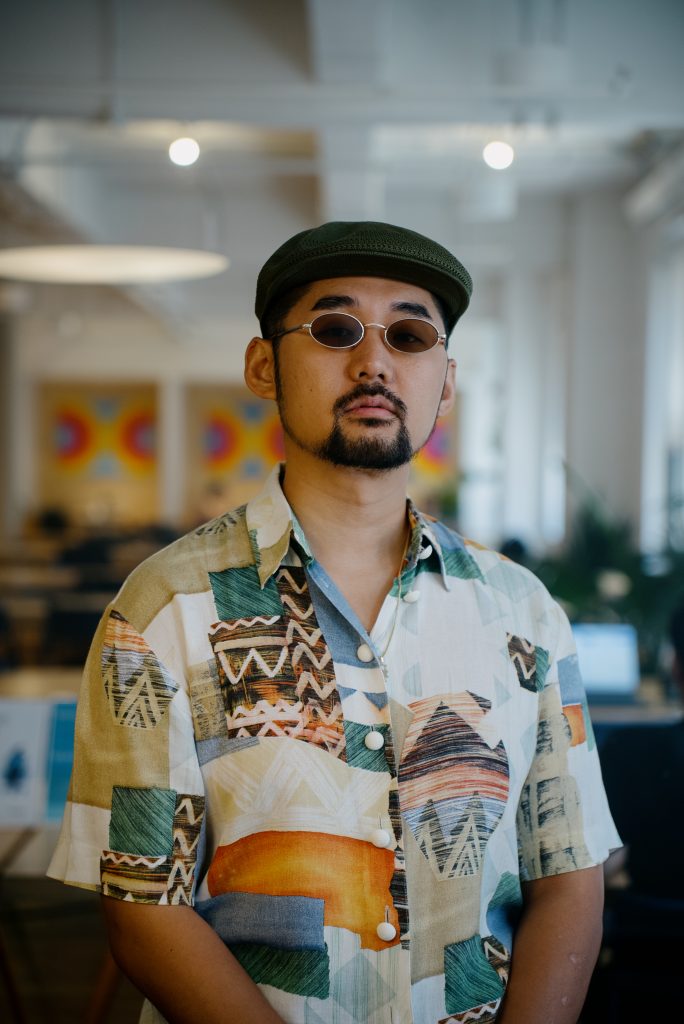
They started doing weekly calls to discuss content and strategy before taking the dive to launch Righteous Eats as a separate channel in the Spring of 2022. It upheld Cho’s original vision of highlighting mom-and-pop, ethnic-owned and operated eateries while also providing a platform that would eventually give other collaborators the ability to join the mission. This allowed smaller restaurants without the resources to hire marketing and PR teams to have their time in the limelight.
“This is our mission and our passion project,” Lee says. “I don’t consider it work, because I could be doing anything. And I’m doing exactly what I want to be doing, which is building a platform for those that don’t have one.”
Lee shares how they’ve gotten positive feedback from both audiences and business owners alike as Righteous Eats has helped bridge the gap between them. He brings up how one of their highlighted eateries, La Dinastia, lauded as one of New York City’s last Chino-Latino restaurants, tripled in business and brought back the old owner out of retirement after sharing their story on Righteous Eats. Not only did they highlight La Dinastia itself, but also the history of Chinese immigrants from Latin countries like the Dominican Republic, Peru and Cuba and the context of how they lived. “People that watch our stuff are like, ‘Thank you for not separating the food from the people that are making it … Thank you for giving historical context to the culture in which it comes from and for not going after the low-hanging fruit of spectacle,’” Lee shares.
Their entire mission is to represent communities of all different walks of life, and do so proudly. After all, who else would take an opportunity to be on a billboard in Times Square and use it to highlight small, ethnic-owned eateries in their stead? “All the money that we spend, and we earn, we put back into [Righteous Eats],” Lee explains, a testament to their genuine generosity in giving back to the community.
Righteous Eats’ transparency sets them apart from other food influencers in the industry. Lee and Cho have always been keen to answer their audience’s questions, have disclosed their sponsorships and have even started a podcast “Building Righteous Eats.” Where the two men discuss the nitty gritty of being food content creators, including the open secret of eateries paying to be featured on an influencer’s page — something Righteous Eats has made a point to never, ever do.
“We’re just asking for [their] time,” Cho says. “We don’t ask for free food. Even if the business owner refuses to take our money, we make sure that we leave a tip. Or, we’ve had instances where we just made an offering to a god because, in certain cultures, guests are considered gods. ”
A little over a year after their first video on the Righteous Eats platforms, their team has grown from three to six, including television producer Helen Cho of “Anthony Bourdain: Parts Unknown” and “Take Out with Lisa Ling” fame. They have lasting collaborations with Samsung (who offered them the aforementioned billboard and event space at their 837 location) and the NYC Tourism and Convention Board (whose collaboration with Righteous Eats on the Savor NYC campaign won a Webby Award in 2023) These accomplishments only add to their goal of forming Righteous Eats into a larger entity.
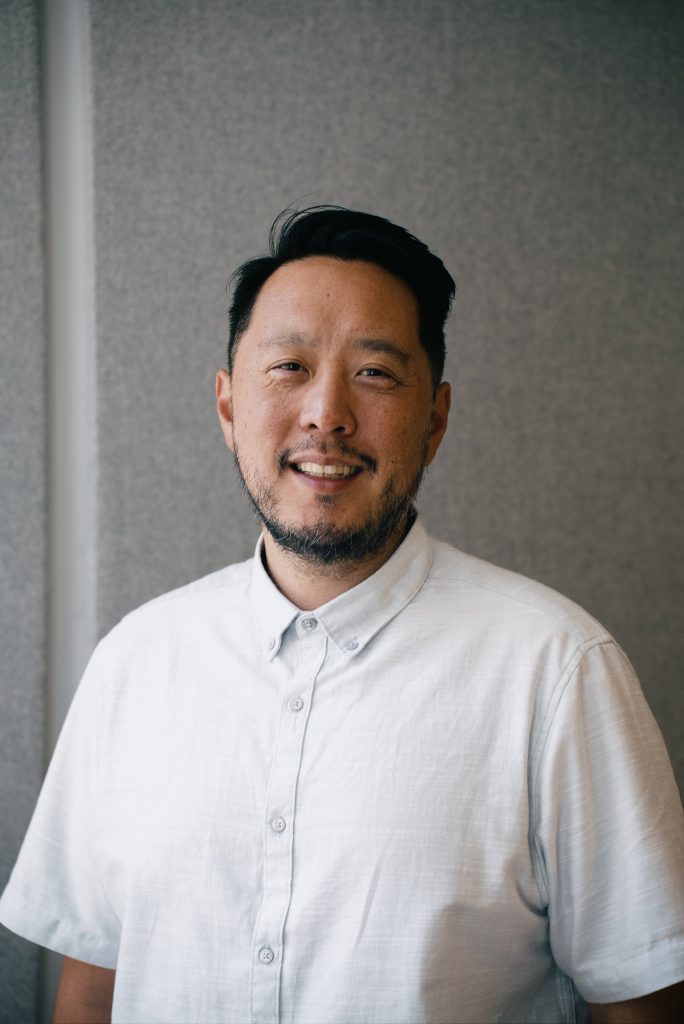
In addition to building their community of viewers and restaurant owners through content, the duo wants to establish opportunities for these eateries to make money at real-life events like food festivals and galas. For example, Cho had the pleasure of curating the food selection for the Queens Museum’s 2023 Gala this past May. He selected five different vendors from Queens that represent five different cuisines and cultures found in the borough, including Evelia’s Tamales, Trinciti Roti Shop, Bolivian Llama Party, Al Naimat Sweets and Bad for Business Pop-Ups.
Eventually, the team at Righteous Eats hopes to become an incubator for mom-and-pop and ethnic-owned/operated businesses, where they’ll have access to the resources that will allow them to thrive as much as the more prominent restaurants do. As Cho says:
“There’s enough room for all of us to eat and to grow and have the same ambitions as you do.”
As of writing, Righteous Eats has highlighted over 80 eateries and have amassed a loyal following. They’re still experimenting with different formats, including long-form videos, and new concepts, like “Spanish Sessions” where executive producer Rob Martinez goes to restaurants and speaks in only Spanish to practice the language. There’s no doubt that Righteous Eats will continue making big waves in the creator space, especially if they keep up the momentum and support from their community. To support their ongoing cause, both Cho and Lee recommend the simple “Like, Comment and Subscribe” adage with the caveat that audiences lend a hand in spreading their message.
This article will appear in Character Media’s Annual 2023 Issue. Read our 2022 issue here.

